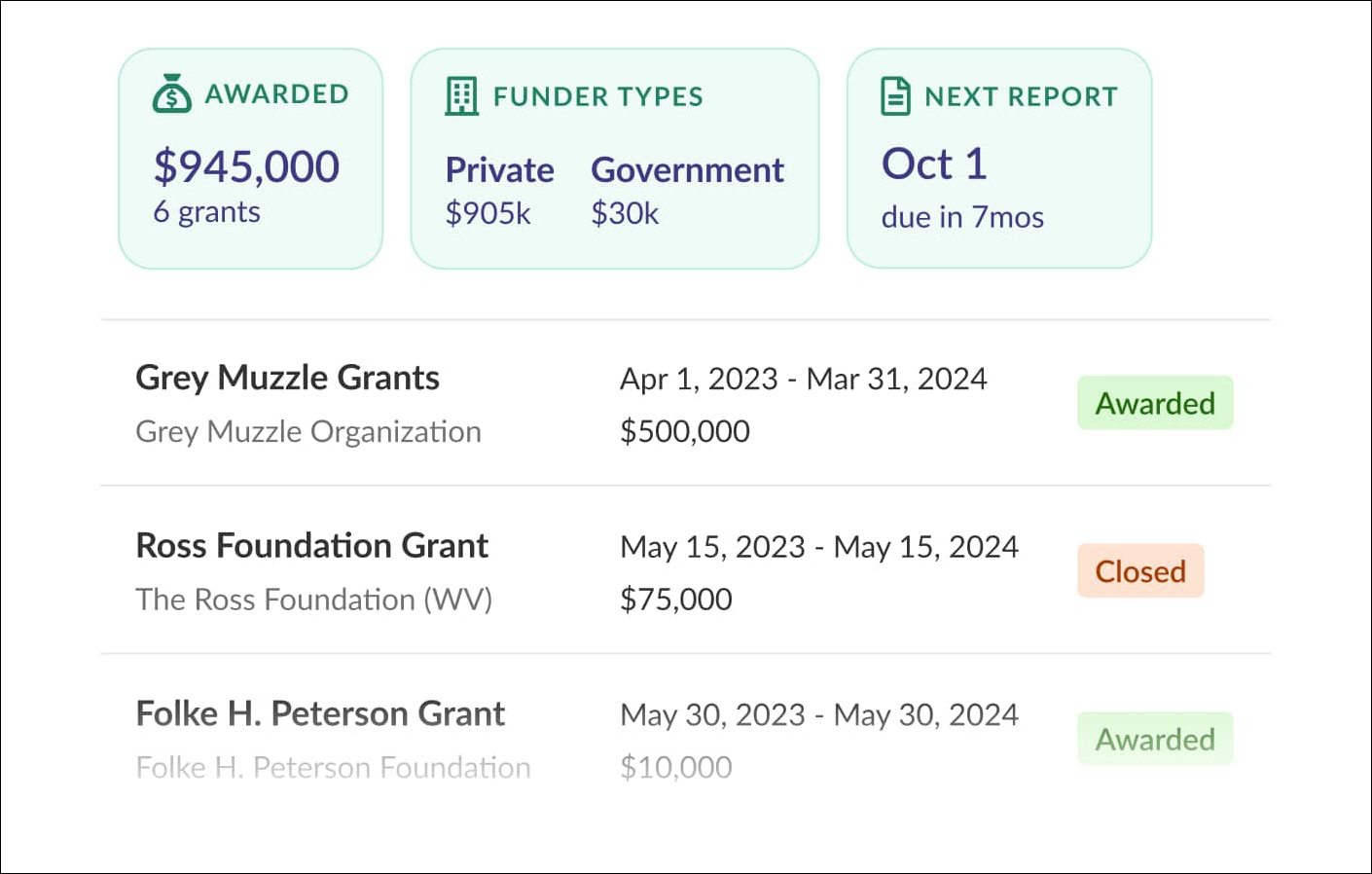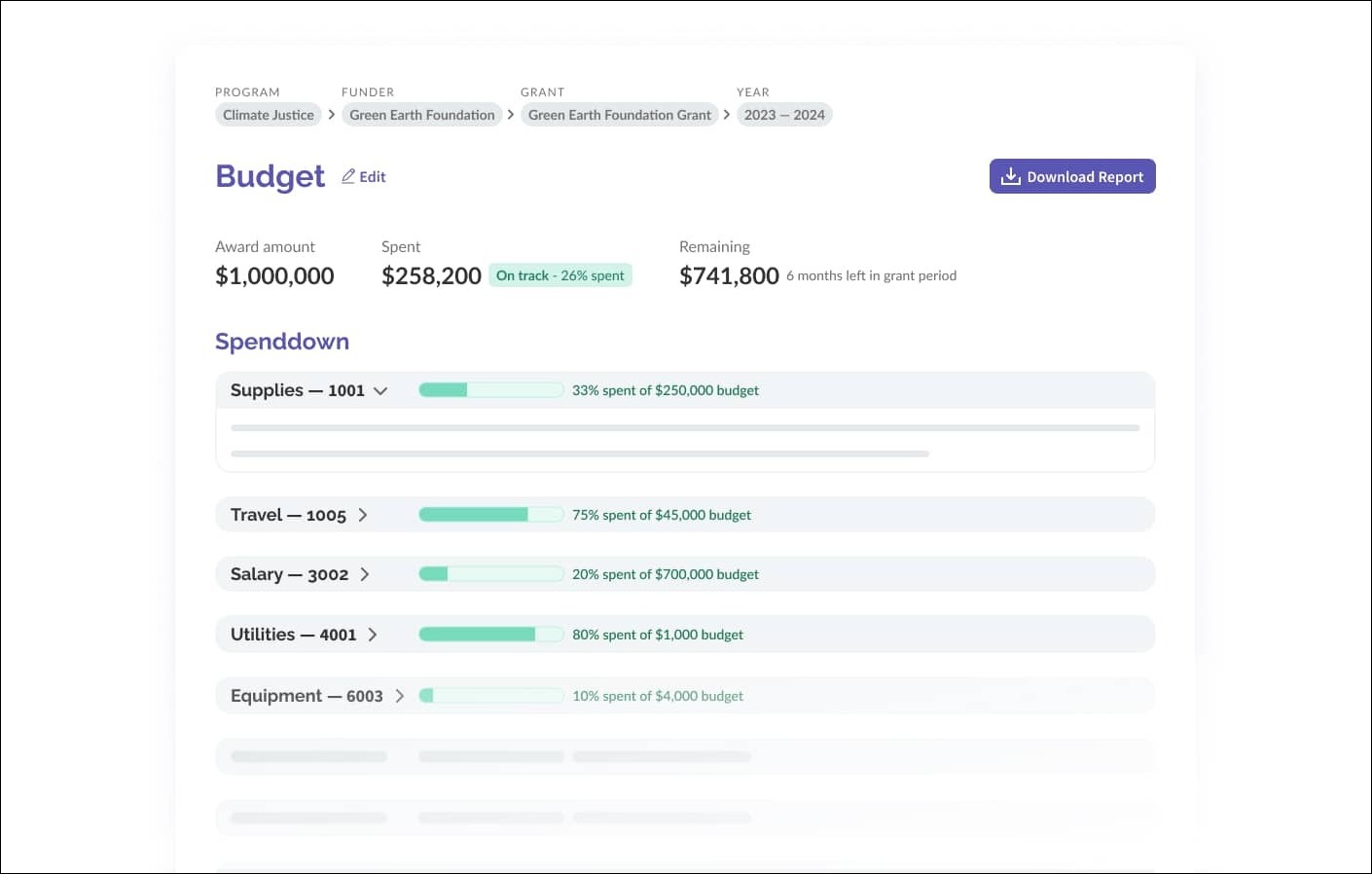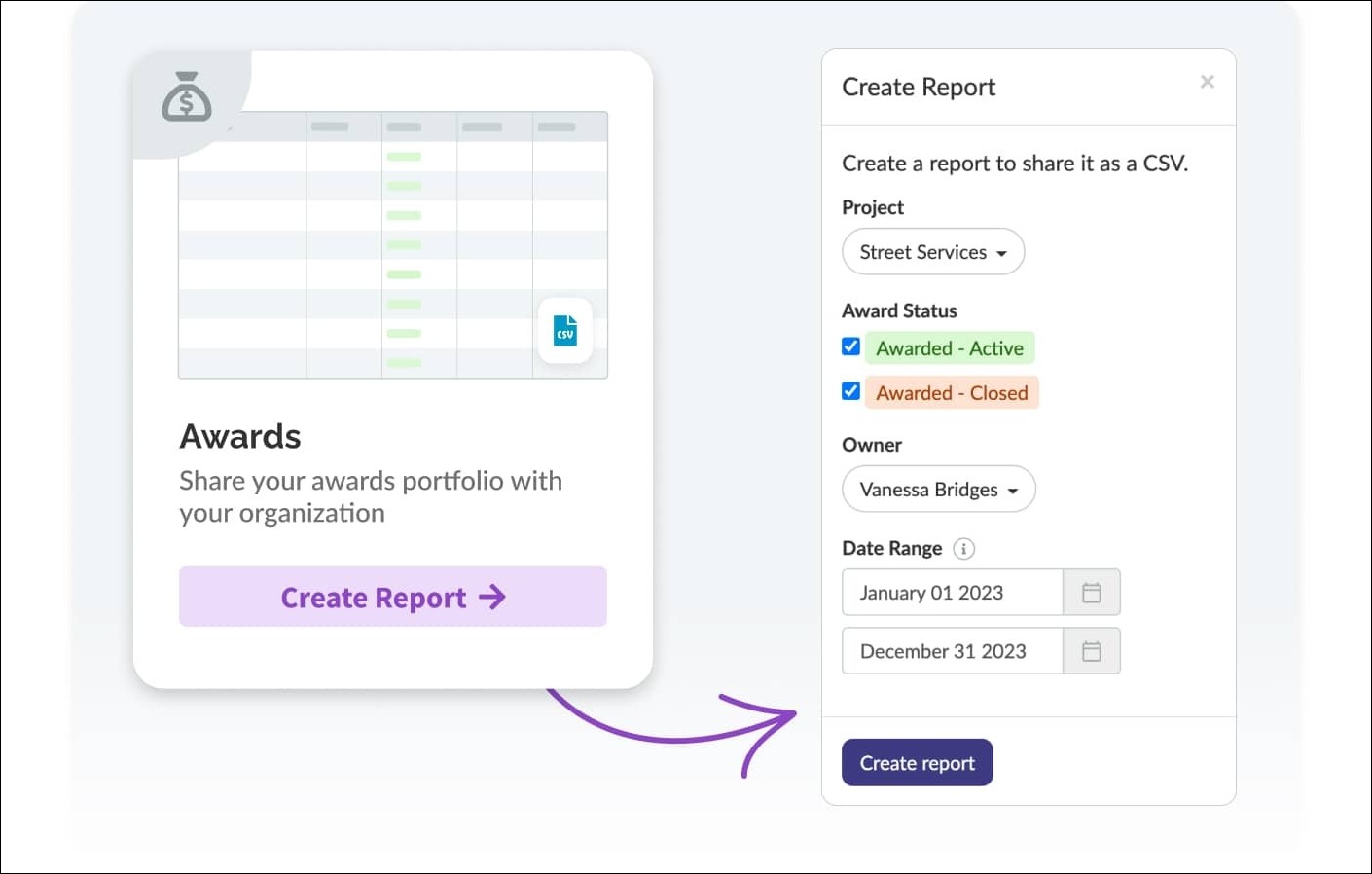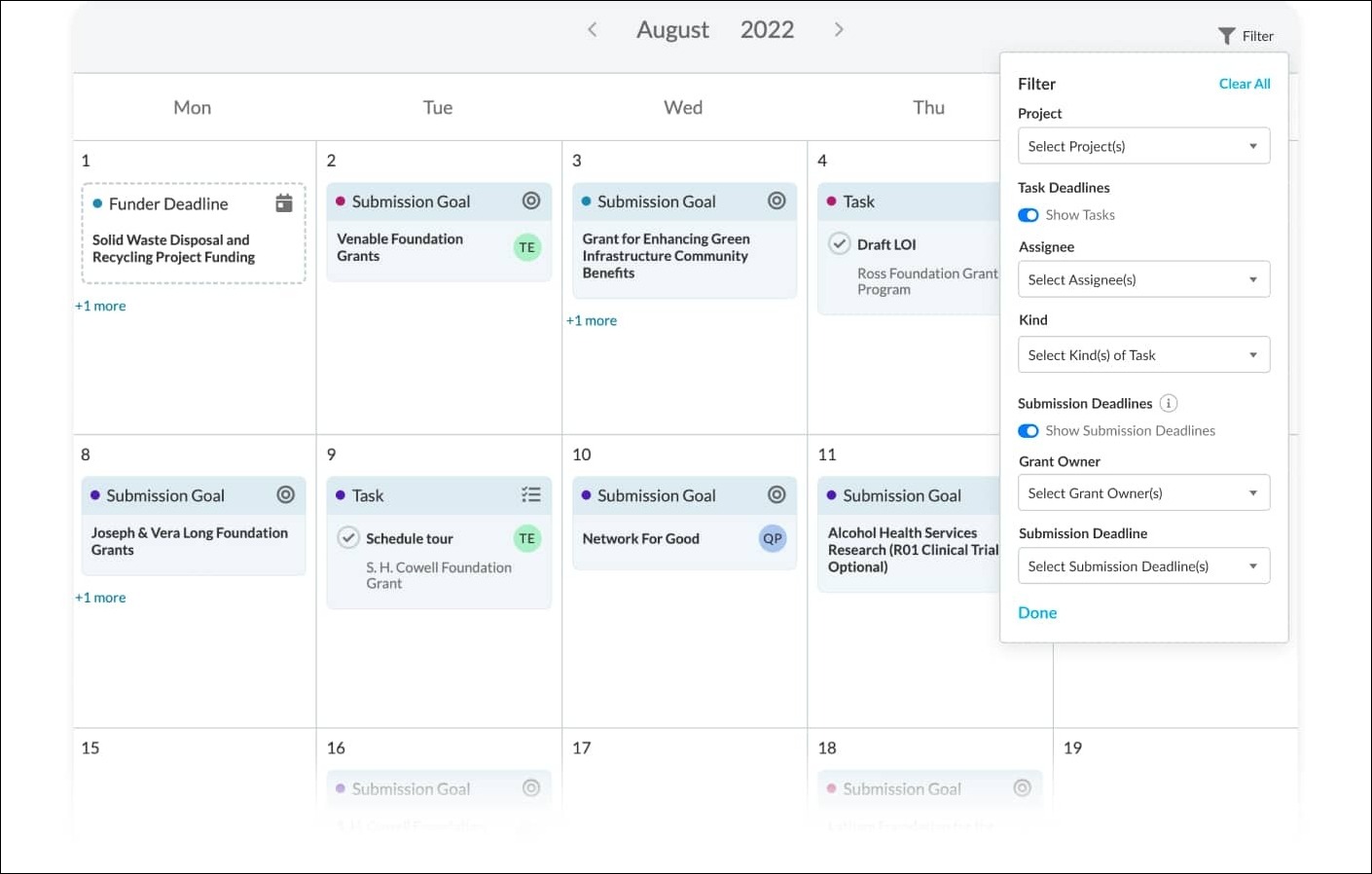Grant Financial Management: Best Practices for Nonprofits
For nonprofits, securing and managing grants is often an intricate and challenging task—especially when it comes to the management of grant money.
Effective grant financial management is crucial for the sustainability and successful implementation of grant-funded projects. In this article, we'll explore:
- What grant financial management looks like
- Best practices for managing grant funds
- How to accurately track and monitor expenditures
- Ways to stay compliant with grant requirements
Are you ready for a no-nonsense guide to grant finances? Let's dive in!
What Is Grant Financial Management?
According to the U.S. Government Accountability Office, effective grant financial management is an essential aspect of a project's success.
Grant financial management involves the careful management of grant funds to ensure alignment with your project goals and compliance with the grantor (funder)’s requirements. Authoritative standards such as the Office of Management and Budget provide essential frameworks for nonprofits to ensure proper use and reporting of grant funds."
It’s about effectively overseeing and managing your grant funds.
management usually involves:
For more detailed guidance, refer to the OMB Uniform Guidance (2 CFR Part 200) and GAO Green Book for best practices in grant financial management.
- Budgeting: Developing a comprehensive grant budget that aligns with project goals and funder requirements.
- Expenditure Tracking: Monitoring and tracking expenditures to ensure they align with the approved budget.
- Compliance: Adhering to the specific guidelines and regulations set by the grantor.
- Reporting: Providing accurate and timely financial reports to the grantor, demonstrating fund usage and project progress.
- Documentation: Maintaining thorough documentation of all financial transactions and relevant paperwork.
- Audit Preparedness: Being prepared for financial audits to ensure transparency and accountability.
- Financial Planning: Strategically planning for the effective utilization of grant funds to maximize impact.
- Communication: Establishing clear communication channels with the grantor regarding financial matters and any changes in the project.
- Risk Management: Identifying and mitigating financial risks to ensure the smooth execution of the project.
- Grant Closeout: Properly closing out the grant by meeting all financial reporting requirements and returning any unused funds as necessary.
The meticulous handling of grant funds ensures that every dollar is used to further your proposed project’s goals and impact.
Proper grant financial management also builds trust with stakeholders through clear, organized financial practices.
You’ll demonstrate to funders that their money is being used appropriately and that their investment aligns with their intended mission.
Properly managing your grant awards will open the door to future grant opportunities with funders.
10 Best Practices in Tracking and Monitoring Grant Awards
Now that we've laid the groundwork let's dive into the actionable part: the best practices for tracking, managing, and monitoring your grants.
1. Understand the Grant Terms and Conditions
Understanding the intricacies of your grant agreement is the foundation of effective financial management and reporting.
Review the grant agreement carefully. Note the financial commitments. Identify any spending restrictions. Record all reporting requirements early, so your team is prepared.
- Financial Commitments: Go through each section of the grant agreement to identify financial commitments, ensuring you are clear on the amount awarded and any matching requirements.
- Restrictions and Allowances: Pay special attention to any restrictions on how funds can be used that may affect your budget planning. Understanding these constraints is crucial for accurate financial planning.
- Reporting Requirements: Identify reporting requirements, both financial and impact, so that your team can be prepared from the start. Highlighting reporting deadlines and creating a visual timeline for reporting obligations can help in managing tasks effectively.
Pro Tip: Instrumentl’s grant calendar makes it easy to keep track of all your grant-related deadlines in one place. Check it out below.

2. Establish Clear Financial Policies and Procedures
Another good grant management practice is to develop comprehensive financial policies, outlining how funds will be managed, tracked, and reported.
To do so:
- Tailor Policies to Each Grant: Develop financial policies specific to each grant addressing unique requirements and guidelines. This ensures a granular understanding of how funds should be managed.
- Incorporate Collaborator Input: Seek input from team members and collaborators when establishing policies. Their insights can offer valuable perspectives and enhance the effectiveness of the procedures.
Pro Tip: You can leverage Instrumentl's Awards View to efficiently manage your awarded grants in one place. This way, all the team members can have access to the details of all the awarded grants, and you can ensure that everyone is on the same page.

3. Segregate Grant Funds
Another important grant financial management practice is to maintain separation between grant funds and your organization’s general operating funds.
This practice ensures compliance with funder guidelines, enhances accountability, and provides a clear audit trail. To segregate grant funds:
- Establish Separate Accounts: Set up dedicated bank accounts or cost centers specifically for your grants. This ensures a clear separation from your general operating funds.
- Document Separation Processes: Clearly document the procedures for segregating funds to maintain transparency and assist in audits.
Pro Tip: Use Instrumentl's Payment Tracking feature for a detailed and visual overview of the inflow of grant funds. The tracker makes it easier to monitor and manage the financial aspects of each of your grants—all in one place. You can easily track specific payment dates and amounts for each awarded opportunity.

4. Regularly Monitor Budget vs. Actuals
When it comes to grant management, continuously tracking expenses against the approved budget is essentially for staying on target.
You can do this by:
- Real-Time Monitoring: Implement a system for real-time monitoring of expenses against the approved budget. Regular checks help in identifying discrepancies early on.
- Adjust and Document Changes: If adjustments are necessary, make them promptly and document the reasons behind each modification. This documentation is crucial for reporting purposes.
Pro Tip: Utilize Instrumentl's Spenddown Tracking feature to keep your team informed and on target for each of your grant budgets.

5. Maintain Accurate Financial Records
Accurate record-keeping and audit readiness are the backbone of grant financial management. Maintaining thorough, organized financial records—including all receipts, invoices, and grant-related reports—not only supports project transparency, but also prepares your organization for audits. According to the IRS, over 1.5 million tax-exempt organizations are subject to audit requirements each year, emphasizing the importance of documentation and compliance for nonprofits.
To prepare for audits and ensure compliance:
- Digital Organization: Consider transitioning to a digital system for organizing receipts and invoices, streamlining retrieval, and reducing the risk of loss.
- Categorizing Documents: Implement a clear categorization system to organize documents by grant, expense type, and date.
- Centralized Document Repository: Keep all financial documents, such as budgets, proposals, and reports, in a single, well-organized location for easy retrieval during audits.
- Digital Storage: Consider using secure digital storage solutions to allow quick access and efficient organization of records.
Grant Finance Checklist:
- Review grant terms and set up a reporting calendar
- Establish clear financial policies and internal controls
- Segregate grant funds from general operating accounts
- Monitor budget vs. actuals regularly
- Maintain organized, audit-ready documentation
Use Instrumentl’s Awards Report to easily share grant-related information with collaborators and keep them informed.

6. Implement Strong Internal Controls
An important practice to ensure healthy grant financial management is to implement checks and balances. Establishing internal financial controls can help you prevent fraud, costly mistakes, and other errors.
You can do this by:
- Defining Approval Processes: Clearly outline processes that require multiple approvals, reducing the risk of errors or fraudulent activities.
- Periodic Review: Regularly review and update internal controls to adapt to changes in personnel or processes.
7. Timely Reporting
Timely reporting is not only a grant financial management requirement but also an opportunity to showcase your organization's impact.
For a successful reporting process:
- Identify Key Deadlines: Develop a detailed reporting calendar highlighting key deadlines for financial and impact reports.
- Assign Responsibility: Clearly assign responsibilities for each reporting task, ensuring accountability.
Pro Tip: Use Instrumentl's customizable and shareable calendars to effortlessly manage tasks and track deadlines. You can include specific projects in your calendar, filter by status, and stay on track with tasks that are relevant to you.

8. Allocate Costs Correctly
When managing grant finances, ensure that expenses charged to the grant are directly related to the grant's objectives.
Use appropriate allocation methods to distribute shared costs fairly. You can do this through:
- Specific Categorization: Clearly define cost categories, ensuring expenses are appropriately classified to align with the grant's objectives.
- Regular Review: Periodically review and update cost categories to reflect changes in project focus or objectives.
Check out this guide to grant accounting for even more strategies for allocating costs correctly.
9. Maintain Transparency with Stakeholders
Make sure to keep stakeholders, including funders, informed about financial progress as it relates to your grants.
You can foster openness through regular communication by:
- Scheduling Updates: Establish a schedule for regular updates on financial progress, ensuring stakeholders are informed.
- Highlighting Achievements: Share success stories with your stakeholders, demonstrating the impact of grant funds.
Remember that transparency builds trust and you need healthy communication to establish these positive relationships.
10. Prepare for Audits
Be audit-ready by keeping financial documents well-organized and easily accessible.
You can do this through:
- Centralized Document Repository: Maintain a well-organized central repository for financial documents, making it easy to retrieve them during audits.
- Digital Storage: Consider transitioning to digital storage to facilitate quicker access and efficient organization.
Pro Tip: Instrumentl’s Document Library can help you maintain your central repository for all your grant-related documents. Store documents like budgets, final proposals, executive summaries, board lists, and anything else that you’d like to keep accessible for you and your team.
Conclusion
It should be clear by now that effective grant financial management is necessary for project success. By implementing these best practices and leveraging Instrumentl's features, you can:
- Streamline your grant management processes
- Build a robust foundation for successful project outcomes
- Pave the way for positive relationships with funders
Key Takeaways
Effective grant financial management is a strategic investment in the advancement of your nonprofit’s mission. As you embark on your grant journey, remember that managing finances isn't just about numbers; it's about making each dollar count toward making a difference!
And don’t forget to sign up for a free trial of Instrumentl to experience it firsthand.

.svg)



